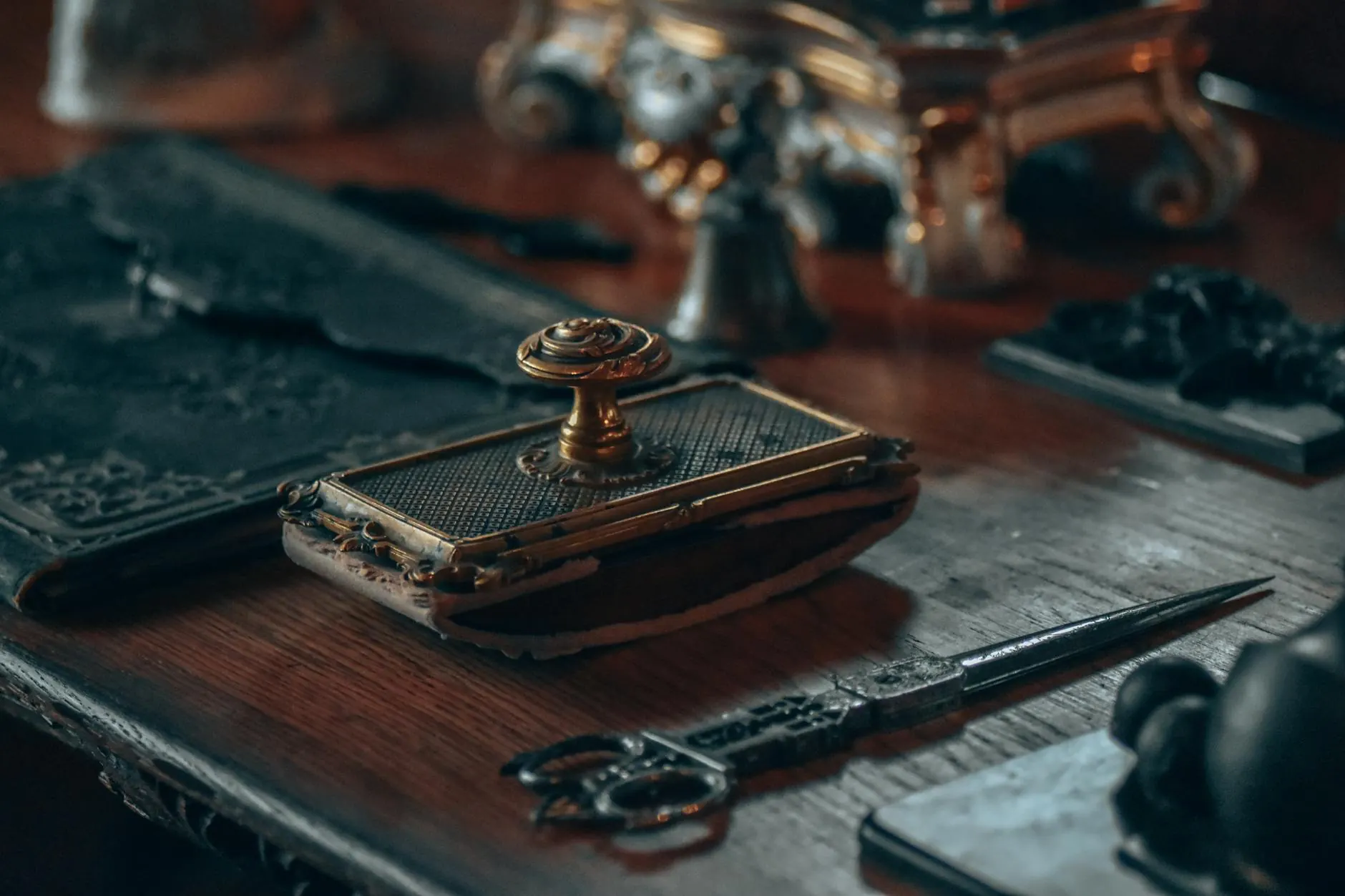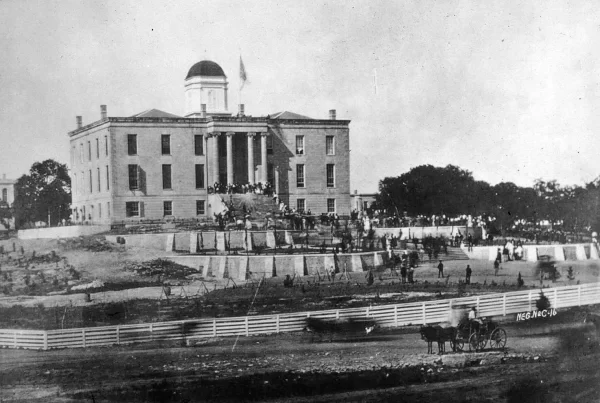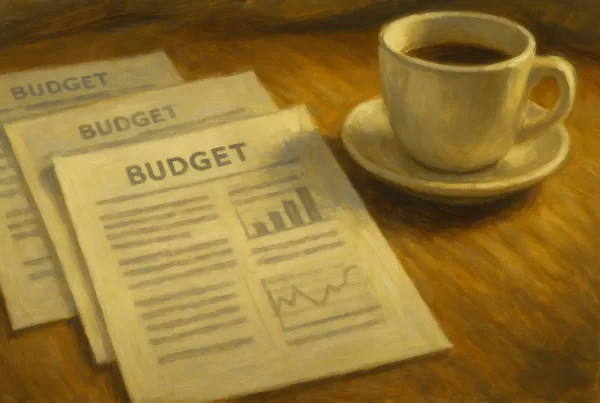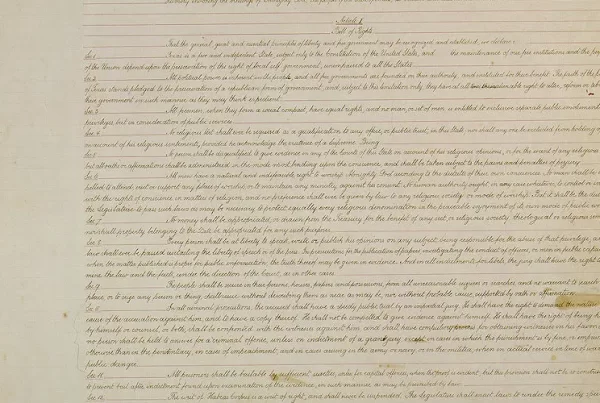Definition of Veto
The veto power is the constitutional power of the governor to reject a bill approved by the Texas Legislature, preventing it from becoming law. Veto means “I forbid” in Latin.
The veto power in Texas is similar to the veto power of the U.S. president, but it differs in key respects, including the power to veto budget line items.
The word veto can be used either as a noun or a verb, either to refer to an action of the governor, or an instance of exercising the veto power. For example, one can say, “The governor’s veto sparked debate in the senate,” or, “The governor vetoed the new tax bill.”
The governor’s legal authority to veto bills derives from the Texas Constitution, which says:
“Every bill which shall have passed both houses of the Legislature shall be presented to the Governor for his approval. If he approve he shall sign it; but if he disapprove it, he shall return it, with his objections, to the House in which it originated, which House shall enter the objections at large upon its journal, and proceed to reconsider it…”
Article 4, Section 14 of the Texas Constitution, adopted Feb. 15, 1876
Veto Procedure
In order for a governor to actually veto a bill, he must write a message stating his objections. Procedurally, this is done in two different ways, depending on whether the legislature is in session or not. If the legislature is in session, then he sends his objections “to the House in which it originated, which House shall enter the objections at large upon its journal, and proceed to reconsider it,” according to the constitution.

If the House is not in session, then “he shall file the same, with his objections, in the office of the Secretary of State and give notice thereof by public proclamation within twenty days after such adjournment.”
For example, Governor Abbott vetoed House Bill 2774 in June 2017, after he the session had ended. He wrote in a proclamation that the bill “would have created a new crime for installation of faulty tires on vehicles. Texas does not need to impose new criminal penalties on people who put tires on cars. For the past two sessions, the legislature has passed several laws aimed at limiting the reach of criminal penalties and reducing the burden of criminal records. This bill goes in the opposite direction. Nobody wants bad tires on the road, but creating a new crime is not the answer to every problem.”
No “Pocket Veto”
The Texas Governor, unlike a U.S. President, is not able to block legislation through a “pocket veto.” The pocket veto is a maneuver that allows the president to block a bill simply by not signing it, if the Congress is not in session. The Texas Constitution makes bills automatically become law unless the governor affirmatively vetoes the bill.
Line Item Veto
The Texas governor may block a single item of a spending bill, or several items, without vetoing the whole bill. A line item is an element of spending authority granted to an agency or institution in an appropriations bill. The government may object to any separate line item in a budget bill.
A governor’s line item veto may be overriden by a vote of two-thirds of the members present of each chamber of the legislature.
Veto Override
The Texas Legislature may override a veto by a vote of two-thirds of the members of each chamber. If that happens, the vetoed bill becomes law despite the governor’s objections.
The constitution requires a record vote to override a veto, meaning the vote of each member must be formally recorded, and the override cannot take place by a voice vote.
Deadlines and Post-Session Veto
When the legislature is in session, the governor can veto any bill within 10 days of it being presented to him (Sundays excepted). That gives the legislature a chance to override the veto.
However, if the legislature has adjourned within the 10-day window, then the governor has 20 days from the adjournment (sine die) to veto the bill.
The Texas Constitution isn’t explicitly clear about whether the legislature can override a veto after a regular session has ended, for instance, if it took up the issue during a subsequent special session.
During the governorship of Rick Perry, his aides argued that the legislature could not override his regular-session vetoes during a subsequent special session.
Similarly, a 1990 report of the Texas Legislative Council opined, “It appears that the legislature does not have the power to reconsider and override the governor’s veto of a bill passed during an immediately preceding session.”
However, the question is still an unsettled matter of law.
Stamp as a Symbol of the Veto
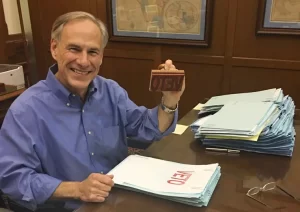
In political cartoons, books, and other documents, the veto power is often symbolized as a stamp, such as the one depicted at the top of this article. However, the formal veto procedure in Texas just requires transmittal of written objections from the governor to the Legislature.
The Texas governor has a veto stamp that he uses for photo ops, but it doesn’t have any actual legal effect. The stamp was a gag gift to Governor William Clements during the 1980s, according to a 2017 report in the Houston Chronicle.
Clements kept the stamp in his office and left it behind when he left office. Governor Rick Perry found it in a drawer soon after he took office in 2000.
